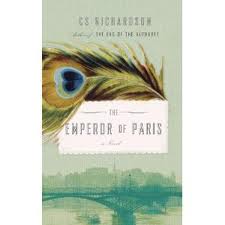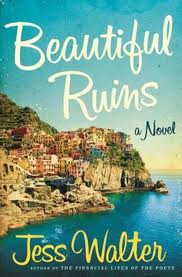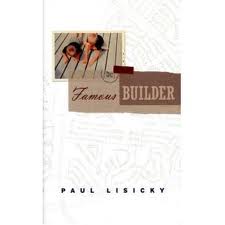The Selected Works of T.S. Spivet by Reif Larsen
A Trick of the Light by Louise Penny
Then Again by Diane Keaton
Rin Tin Tin: The Life and the Legend by Susan Orlean
The Art of Fielding by Chad Harbach
Beastly Things by Donna Leon
The Impossible Dead by Ian Rankin
Blue Nights by Joan Didion (the rhythm and pacing of each perfect sentence)
Vertical by Rex Pickett (a deeper, darker, more redemptive journey for Miles and Jack)
I Am Half-Sick of Shadows by Alan Bradley
Sideways by Rex Pickett
Puppy Love by Frauke Scheunemann
The Wild Beasts of Wuhan by Ian Hamilton
Why Men Lie by Linden MacIntyre
All My Friends Are Superheroes by Andrew Kaufman
The Uninvited Guests by Sadie Jones
Live Wire by Harlan Coben
Why Not? Fifteen Reasons to Live by Ray Robertson
The Ten-Year Nap by Meg Wolitzer
The Weird Sisters by Eleanor Brown (her affection for Shakespeare matches my own)
This is How by Augusten Burroughs
Indian Horse by Richard Wagamese (harrowing, heartbreaking, healing)
Unquenchable by Nathalie Maclean
The Unfinished Work of Elizabeth D. by Nichole Bernier
The Baker’s Daughter by Sarah McCoy
The Key by Simon Toyne
The Things We Fear Most by Gloria Vanderbilt
Tigers in Red Weather by Liza Klaussmann
Seating Arrangements by Maggie Shipstead
Inside by Alix Ohlin
Famous Builder by Paul Lisicky
The Newlyweds by Nell Freudenberger
The Unlikely Pilgrimage of Harold Fry by Rachel Joyce
A Wanted Man by Lee Child
Hemingway’s Girl by Erika Robuck
Laura Lamont’s Life in Pictures by Emma Straub
The Red Pole of Macau by Ian Hamilton
Arcadia by Lauren Groff
The Lola Quartet by Emily Mandel (inheritor of Chandler, which is why I adore all of her writing)
The Next Best Thing by Jennifer Weiner
A Prayer for Owen Meany by John Irving (re-read)
The Great Gatsby by Scott Fitzgerald (re-read) (stunning, make your heart skip-a-beat prose
A Moveable Feast by Ernest Hemingway (re-read)
The Long Goodbye by Raymond Chandler (the noir-master's best--Banville's Marlowe cannot possibly measure up)
Book of Souls by Glenn Cooper
Beautiful Ruins by Jess Walter (the book I gifted more than any other 2012 title)
Canada by Richard Ford (master craftsman provides such a rich interior life--and the chapter about loneliness snagged my breath)
Gold by Chris Cleave
The Sportswriter by Richard Ford
Trust Your Eyes by Linwood Barclay
The Fault in Our Stars by John Green
The Selected Letters of Raymond Chandler (his love for his wife Cissy Pascal is enviable)
Mortality by Christopher Hitchens (these exquisite essays make me miss a man I never knew)
The Emperor of Paris by C.S. Richardson
The Beautiful Mystery by Louise Penny
Who's Afraid of Virginia Woolf? by Edward Albee (Albee's finest play--such a brilliant study in character)
The Bat by Jo Nesbo
Whirl Away by Russell Wangersky
The Lay Of The Land by Richard Ford (my favourite of the Bascombe books in which I felt as if Frank were speaking directly to me)
Dear Life by Alice Munro (these stories are the Grande Dame of short fiction's most personal to date)
Standing in Another Man’s Grave by Ian Rankin (Rebus is back!)
Malarky by Anakana Schofield
In One Person by John Irving
One Good Hustle by Billie Livingston (true, dark, redemptive narrative voice)
Swimming Home by Deborah Levy (reminded me of Francoise Sagan's Bonjour Tristesse)
The Headmaster’s Wager by Vincent Lam
Faithful Place by Tana French
Drawing Conclusions by Donna Leon
Here is New York by E.B. White (a brilliant billet-doux to NYC)
Until the Night by Giles Blunt
Stay Close by Harlan Coben
Z: A Novel of Zelda Fitzgerald by Therese Fowler (a richly imagined, finely detailed perspective that will have you yearning for 1920s NYC and Paris due April 2013 from St. Martin’s Press)
Gone Girl by Gillian Flynn
The Demonologist by Andrew Pyper (smart, taut, terrifying thriller featuring a Milton scholar due March 2013 from Simon and Schuster)
Wave by Sonali Deraniyagala (due March 2013 from McClelland & Stewart and A.A. Knopf--I fully expect this unflinching, harrowing, stunning memoir to win the National Book Award)
Currently reading The Richard Burton
Diaries, Cathy Marie Buchanan's The Painted Girls and the ARC of Life After Life by Kate Atkinson (due April 2013 from Bond
Street Books)






























